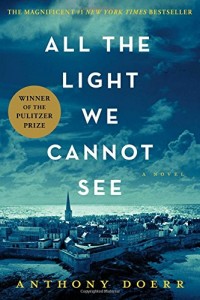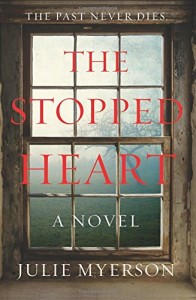Soul soothing…
Last night I went to bed troubled by a dark yet gripping novel I had just finished (review to follow)
Then woke to news of yet another senseless, hate-fueled shooting.
I soothed my soul in the garden, ending the day by harvesting some fragrant lavender.
I post some photos in a small attempt to sooth your souls as well.
Goodnight all – sleep tight and stay safe…
Everything is Copy
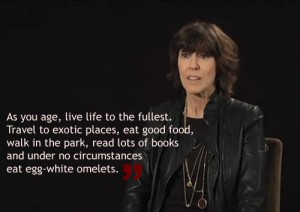 If you’ve been following Book Barmy, you know of my admiration for Nora Ephron. I professed my devotion to her in this POST.
If you’ve been following Book Barmy, you know of my admiration for Nora Ephron. I professed my devotion to her in this POST.
Last night I watched a wonderful award winning documentary about her life called Everything is Copy – trailer HERE.
This quiet but powerful film, had me glued to the screen, an extended visit with this beloved author, journalist, and screenwriter. The film was written, directed and is narrated by her son Jacob Bernstein (her son from her marriage to the infamous Carl Bernstein).
Everything is Copy celebrates her writings, films, family, marriages and her many many friends. Nora is portrayed as smart, funny, urbane and sometimes insensitive and controlling (“she always had a razor in her back pocket”).
Her ex-husband (Carl Bernstein) speaks of her with guarded warmth and sisters Delia and Amy (also authors) speak of Nora with cautionary admiration.
It seems her friends and colleagues were her true family — her true admirers. Nora was everyone’s favorite party host and dinner guest (I knew it!)— she purposely surrounded herself with smart, influential literary and Hollywood notables.
There are cameo appearances by literary icons such as Gay Talese, Victor Navasky, Liz Smith and Marie Brenner (Marie is deliciously filmed in front of her personal library). Nora was schoolmates with Barry Diller and close friends with Mike Nichols and Bob Gottlieb.
Nora’s essays are read by a range of celebrities including Meryl Streep, Resse Witherspoon and a odd looking Meg Ryan (she’s had work done – badly, in my opinion.)
There are snippets of Nora’s interviews from an early talk with Dick Cavett to a more recent interview with Charlie Rose. Old color film of New York City brings to life her early, exciting days at The Post.
Her illness and death are given much import to this documentary. The fact that Nora had openly shared her life (and sometimes others’ lives) but kept her illness a secret for years, was a shock to her circle of close friends and colleagues. They express their bewilderment, and sometimes anger, that Nora kept this information from them. But in the end, the film draws the conclusion that her illness was her personal business and her choice to keep it a secret, was perhaps because it was the one thing she couldn’t control.
The film ends with a reading of her essay Things I Will Miss , written in her final years. Have some tissues handy.
If you have HBO or Netflicks and, like me, you are a fan of Nora Ephron, put Everything is Copy on your must watch list.
My Mrs. Brown by William Norwich
I’ve been reading these ~
One is a Pulitzer-winning tale of WWII and the other a intriguing suspense novel from a UK author. While I’m enjoying both books, (simultaneously –depending on my mood) this Advanced Readers Copy on my Kindle caught my eye the other night.
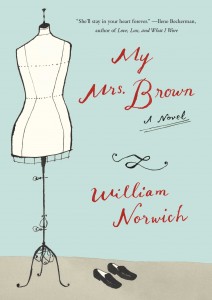 Like the most popular girl at the ball, I quickly dropped the other two books and started to dance with this one. (You may go ahead and accuse me of being a fickle reader. Okay, I’ll cop to it — it’s one of my many bibliophile flaws.)
Like the most popular girl at the ball, I quickly dropped the other two books and started to dance with this one. (You may go ahead and accuse me of being a fickle reader. Okay, I’ll cop to it — it’s one of my many bibliophile flaws.)
My Mrs. Brown has been called a feel-good book for women of a certain age and I thought – well I’ll just dip in and see if it’s worth reading. Before I knew it, I was halfway through and only stopped reading when my eyes wouldn’t stay open any longer. I finished it the next evening in one bout.
The novel is a re-telling of the 1958 novel Mrs. ‘Arris Goes To Paris by Paul Gallico and tells the story of a “woman of a certain age” in a small town in Rhode Island. Widow, Emilia Brown dresses sensibly, sewing her own clothes in browns and greys. She lives in a simple duplex and works as the cleaning lady for the local beauty salon. She looks forward to chatting each evening with her renter in the adjoining duplex – a daughter of a friend, who in her black goth outfits – startles the genteel Mrs. Brown on many subject areas, but eagerly seeks the older woman’s wise counsel…
Everything is going to be okay in the end. And if it is not okay, it isn’t the end.
Mrs. Brown is a frugal, simple woman who admires the beautiful women around her but doesn’t actually care about beauty for herself. Until the day she is helping inventory the estate of a recently deceased wealthy dowager and Mrs. Brown comes upon the dress, hanging in an almost empty closet:
Black and elegant, it is cap-sleeved with a single-button jacket made of the finest quality wool crepe. …a simple yet exquisitely tailored Oscar de la Renta sheath and jacket, that she realizes, with startling clarity, will say everything she has ever wished to convey about herself.
Mrs. Brown is quite taken with its simple elegance, yet she can’t bring herself to touch it with her work-roughed hands. The dress is simple, yet exquisitely tailored, lined with pure silk and costs more money than Mrs. Brown could ever afford. The dress is sent on to the auction house with the rest of the grand dame’s valuables, but it awakens an “invincible spring” inside Mrs. Brown.
Sometimes a dress isn’t just a dress.
She takes on extra cleaning jobs, skimps on her meals and starts saving for the dress – $7,000 –an extravagance that begins to define Mrs. Brown in ways she couldn’t imagine.
The story of how Mrs. Brown gets the money and then journeys to New York City made me smile, and then grin — the scene where she exits Penn Station and sees the New York City for the first time will resonate with anyone who remembers their first experience of that astounding and magnificent city.
Once the story moves to New York City, I must confess, it becomes a bit contrived — but in a good way, like reading Dickens — a fairy tale for grown up women. Mrs. Brown encounters kindness and help on Seventh Avenue the fashion center of Ne York — at first because she is carrying her mother’s valuable hand-me-down vintage handbag and later, because everyone, including Oscar de la Renta himself, wants to help this quiet, drab lady achieve her dream. He tells her quietly
“We’ve an expression on Seventh Avenue. It’s music to most women’s ears. ‘I can get it for you wholesale,’ and, Mrs. Brown”, Oscar said, “if I can’t get it for you wholesale, then we’re in a lot of trouble around here.”
From then on, Mrs. Brown’s story concludes towards the happy ending we hope for. The dress is procured and professionally altered to fit her perfectly, a new friend in New York City finds love — even Mrs. Brown’s life is back in her small town is changed- no her life is now charmed — because she got the dress – her dress.
Mr. Norwich (a fashion writer) has portrayed Mrs. Brown not only as a woman who is not yet past her prime, but as a true lady — maintaining her strength, grace and dignity in a world where the Mrs. Browns are often disregarded.
Most women have wished for such a dress, one which spoke to them, one which when possessed and worn could have a Cinderella affect.*
An unapologetically sweet story, not striving to be great literature, but rather to restore the reader’s faith in kindness, goodness and grace. Definitely, a feel-good novel. Now I’ll go back to my other book dates – hmmm, what am I in the mood for? WWII resistance tale or a creepy country house in the English countryside?
*Mine was a black & white, beautifully draped polyester disco dress — don’t judge — it was the late 70’s, and it was fabulous.
A digital review copy was provided by Simon & Schuster via NetGalley.
The Imperfectionists by Tom Rachman
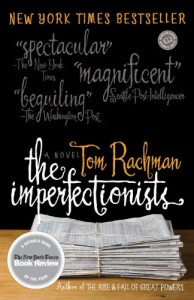 The Imperfectionists by Tom Rachman
The Imperfectionists by Tom Rachman
I always wanted to be Christiane Amanpour, international correspondent, foreign reporter. A career to dream of with exotic locations and multilingual people breaking international news –the disasters, war and brutality notwithstanding. Don’t get me wrong, I had my own great career, filled with wildly creative people, its own exotic locales and many rewards. But I sometimes still wonder…
Which is why I was drawn to this novel about a struggling English language newspaper and its employees based in Rome. Just take a look at the cover and the spectacular acclaim.
So why did it take me over two months to finish?
Sometimes funny, often heartbreaking, the individual stories, each of which focuses in on an individual employee and their unique job at the paper, are interspersed with short passages letting us into the paper’s history and the publishers’ struggles to keep it running. The paper is hardly at the cutting edge of technology–it doesn’t even have a website.
There is Lloyd, the beaten-down Paris correspondent who is willing to trick his own son for a byline. Then copy editor Ruby who has a fondness for her routines that only somewhat mask her constant fear of being fired. There’s Abby — aka Accounts Payable — the financial officer who finds herself on a plane seated next to an employee she laid off . In one of most humorous stories, you’ll meet Winston, the naive Cairo stringer who is manipulated by a wily, egotistical competitor. You’ll also read about the corrections editor, who has painstaking compiled a 18,000-word plus style guide he calls “The Bible”; woe to the unwitting writer who violates it! You’ll meet Kathleen, the arrogant, workaholic editor-in-chief who learns things about herself from a past lover that she would rather not know. There’s even a loyal reader, who has read each line of every issue since the beginning and as a result is far behind, stuck in the past and won’t let today’s paper (or any current news) into her life.
Sounds like fun, such a great collection of people, but we know from the title The Imperfectionists, that these are going to be imperfect people. Mr. Rachman goes even further to give these imperfect characters fears, greed, regrets, secrets, resentments, jealousies, and nearly unbearable sorrows. These are beautiful character sketches, filled with adultery, job loss, co-dependency, manipulation and loss of prestige and pay. The author does give us consistently beautiful writing and has an ear for gripping conversation.
But it was the theme of The Imperfectionists that grew weary — the world is a mess and nothing can or will make things better. Does no one care about their job? Does anyone care about the paper? Doesn’t anyone take delight in the fact they are living and working in Rome? (Though it is based in Rome, we see nothing of the beautiful city, culture or people – as there was no sense of place. We could be reading about Kansas City.)
I would just start to get interested in a beautifully drawn character and then slam– something horrible happens and you’re on to the next poor soul. At first this was intriguing – never knowing what the talented Mr. Rachman will do next. But towards the latter half of the novel, I started to dread the next meanness – the next cruelty. With a novel based on international reporting, one expects a share of atrocities and horrors, but this is all about misguided people and their frailties – not about politics or world issues.
I can recommend this book for its excellent writing, pitch perfect dialogue and some brilliant characterizations. And, in my on-going effort to get away from my “Pollyanna-ish” reading comfort zone, I’m glad* to have read, and most importantly, finished this novel.
But I must admit that I’m a bit schizophrenic regarding The Imperfectionists. Early on, I was gobbling down the pages, chuckling at each character, but toward the end, I could barely stand it. So little redemption, so little hope – it became a forced march.
*Pollyanna — “glad” – get it? Sometimes, I just crack myself up.
One for the book
My books lie unopened, my PBS shows are filling the DVR and the magazines are unread on the table…what’s going on at Book Barmy you may ask?
It’s because of this guy.
 Yes, believe it or not I’ve been watching basketball – mesmerized by our Golden State Warriors and especially Stephen Curry.
Yes, believe it or not I’ve been watching basketball – mesmerized by our Golden State Warriors and especially Stephen Curry.
Normally, I ignore the sports Husband watches — often, it seems, for hours at end.
I’ve tried to take an interest because he does, but I don’t really understand football, baseball seems slow and I can only watch little bits of tennis before I am gravitating for something to read.
But close my book and grab me a beer, I’m glued to the set, mouth open and holding my breath watching these awe-inspiring games. For those of you outside of the Bay area you may need to get caught up.
Here’s a video of the best of Stephen Curry – just watch his moves and you’ll understand why he’s one for the book — and why I’m, at least for now, a sports fan.
Video HERE
N.B. Full disclosure, while I may have become a temporary sports fan, I still haven’t developed a taste of beer.
Michael Dirda ~ Part Deux
Michael Dirda
I received an email from one of my legion of loyal few Book Barmy readers regarding this post on the book of essays entitled Browsings by Michael Dirda. This reader wondered why, as a declared Anglophile, I had failed to mention his essay called Anglophilia or perhaps I had skipped it?
Well, this sent me scurrying back to the book because I frankly didn’t remember said essay. After reading it I realized that I must have skipped this one — you see, I did not adhere to Mr. Dirda’s introductory rule of reading his essays in order.
I hung my head in shame, and as penance, last night I again browsed through Browsings (sorry for that phrase, but you knew it was coming, didn’t you?). I ended up re-reading several of my favorites and finding a passage or two I had fogotten.
The neglected essay Anglophilia was written during Queen Elizabeth’s 60-year jubilee and should be read in its entirety, as it is chocked full of British greatness. Mr. Dirda admits his secret fantasy of being picked for a knighthood or an OBE. He feels he may have earned such an honor given his lifetime of dreaming of Harrods Christmas hampers, box seats at the Grand National and pub lunches of shepherds pie.
In real life, his Anglophilia is limited to a Harris Tweed sport coat, a few Turnbull & Asser shirts (picked up at a local thrift shop) and watching Miss Marple mysteries on television.
(I watch them) less to guess the identity of the murderer than to look at the wonderful clothes and the idyllic Costwoldian village of St. Mary Mead. My wife tells me I should check out Downton Abbey, but I gather that series might be almost too intense for my temperate nature.
Of course, most of Mr. Dirda’s Anglophilia is bookish, and he imagines his very own country house library – (my imagined room is quite the same):
…lined on three walls with mahogany bookshelves, their serried splendor interrupted only by enough space to display, above the fireplace, a pair of crossed swords or sculling oars and perhaps a portrait of some great English worthy. The fourth wall would, of course, open on to my gardens, designed and kept up by Christopher Lloyd, with the help of Robin Lane Fox…There would definitely be a worn leather Chesterfield sofa, its back covered with a quilt (perhaps a tartan? decisions, decisions) and its corners cushioned with a half-dozen pillows embroidered with scenes from Greek mythology. Here, I would recline and read my books.
I found a few other passages I must read out loud to you…okay you can read them yourselves.
He ruefully muses about his book buying expenditures:
It’s true that even $5 book purchases do add up. Yet, what after all is money? It’s just this abstraction, a number, a piece of green paper. But a book — a printed volume, not some pixel on a screen — is real. You can hold it in your hand. Feel its heft. Admire the cover. Realize that you now own a work of art that is 50 or 75 or even 100 years old. My Beloved Spouse constantly berates me for failing to stew sufficiently about money. For 30 years I diligently set aside every extra penny to cover the college educations of my three sons. I paid off my home mortgage long ago. I even have some kind of mutual fund. Nonetheless, it’s hard for me to feign even minimal interest in investing or studying the stock market. What a weary, stale, flat, and unprofitable – okay, make that profitable — way of life it is to think constantly about the bottom line. Keogh plans, Roths, Schedule C, differed income, capital gains, and rows and rows of little numbers…The heart sinks.
And finally, I’ll leave you with more about his plan to travel around the US visiting second-hand bookstores.
(In addition to stopping at bookstores) …I’d naturally take the time to genuflect at the final resting places of writers I admire. Come lunchtime I would obviously eat in diners and always order pie for dessert, sometimes à la mode. During the evenings sipping a local beer in some one-night cheap motel, I would examine the purchases of the day and fall asleep reading shabby, half-forgotten novels.
Thinking I would not need or want to re-read this book, it almost went into the library donation bag. See what I almost missed? I stand vindicated in my board hoarding collecting. I’m giving Browsings its permanent and rightful place on my bookshelves.
Browsings by Michael Dirda
 Browsings by Michael Dirda
Browsings by Michael Dirda
A Year of Reading, Collecting, and Living with Books
What prompts me gravitate to books about other books? They only add to my long lists and piles of books I want – nay, must read. It’s a sickness I tell you – a real sickness. You may remember this post, when, after doing the math, I soberly realized I’ll never read all the books I want to read. But like a moth on its death journey towards a hot light, here I go again. Send help…
I just finished reading Browsings, Michael Dirda’s collection of essays about – you guessed it — books and reading. Mr. Dirda, a weekly book columnist for the Washington Post, is no slouch, he received the Pulitzer Prize for distinguished literary criticism.
These essays come from his writings for The American Scholar. I’d never heard of this journal and after some sleuthing (OK, a bit of Google searching) it turns out to be the quarterly magazine of the Phi Beta Kappa Society. (No wonder I never heard of it. Way above my mental pay grade.) Lest you fear, these essays are down to earth, funny and nowhere near as pretentious as “The American Scholar”. Just read this from the back jacket cover:
He was once chosen by Washingtonian Magazine as one of the twenty-five smartest people in our nation’s capital – but, as Michael says, you have to consider the competition.
In the introduction, Mr. Dirda recommends reading his essays no more than a few at a time, and also reading them in order. I obeyed the first advice, but not the second. I admit I did leap around a bit, but in the end, I read them all. Browsings was my constant companion for that soothing half hour just before falling asleep.
The essays in Browsings are eclectic and seemingly random…from his sad musings of his mother’s nursing home to the loss of cursive penmanship – but the connective tissue is books, reading books, collecting books, finding books, talking about books and writing about books.
In fact, many of the essays are interspersed with reading lists (thus my ever expanding TBR titles). We share a fondness for Christmas books — he lists and summarizes his favorites – (taking notes, taking notes…)
Another essay starts with a rant against his local power company when he was without power for three days during a DC area heat wave.* By the third day, he blissfully escapes to a cooler, more northerly-located bookstore. Mr. Dirda, naturally summarizes the numerous books he acquired. (Come right this way folks, see the idiot making yet more lists of books…)
He has a love of older books – eschews bestsellers and feasts his eyes (and his wallet) on the vibrant dust-jackets of the 1940’s and 50’s. There’s a divine essay dedicated to the golden age of detective novels – trust me readers, you, too, will be jotting notes. Mr. Dirda, in another excerpt, reflects upon the bookshelves, favorite notebooks and writing implements of various great authors — what reader can’t resist picturing Colette writing with a beloved Parker fountain pen?
After reading an article about millionaire author and Law & Order producer David Wolf, who owns a home in Montecito, California — “where God would live if he had the money.” –he ponders excessive wealth and Tolstoy’s lament – “how much (land) does a man need?” Mr. Dirda reflects on his own excess — books:
It’s certainly not as though I need any more books. Just yesterday I was up in the attic creating neat stacks of those I would like to read Right Now.
Of course the author speaks fluent French and taught English in Marseille. He tells of a hunch-backed dwarf who cut hair in a garage, where one had to climb down into a pit so he could circle around and cut the hair. I don’t do the tale justice, you must read it for yourself.
When I read the following passage, I wondered if Mr. Dirda was a ghost here in my home office, silently judging me hunched over my computer:
…I’ve discovered, you have to get out, you do need to see other human beings. You can’t just read and write all day, much as I’d like to. After a few hours in a chair, my body grows achy, my brain feel even mushier than usual, my tired eyes start to hurt. To refresh myself I usually go for a walk, or if I’m feeling virtuous and resolute, I’ll hike over to the gym. (Thanks much, how to be superior Mr. Dirda.)
I just love this guy, he’s a charming, quirky book nerd. How could I not fall for a guy who dreams of traveling around North America in a van visiting secondhand bookstores. (Question, would a van be large enough for both of us and our book purchases? — Time to re-think the vehicle Mr. Dirda.)
After finishing the final essay, and in addition to the wildly optimistic new list of books I must want to read, I jotted down some quotes from Browsings – you bibliophiles out there will relate:
I also think of some books as my friends and I like to have them around. They brighten my life.
The world of books is bigger than the current best-seller list.
Books don’t furnish a room. A personal library is a reflection of who you are and who you want to be, of what you value and what you desire, of how much you know and how much more you’d like to know.
What fun it was to spend time each evening with a witty, engaging and off-the-charts-smart booklover whose reading covers a surprisingly wide breadth of interest and expertise.
Look for his other books which include Book by Book (own it), Classics for Pleasure (want it), and Readings (just got it).
(*N.B. He’s talking about Silver Spring, Maryland, where I grew up and summers were indeed brutal. I spent those hot, humid days with Nancy Drew in front of a cooling fan until I was forced to go out and play. That says a great deal don’t you think?)





